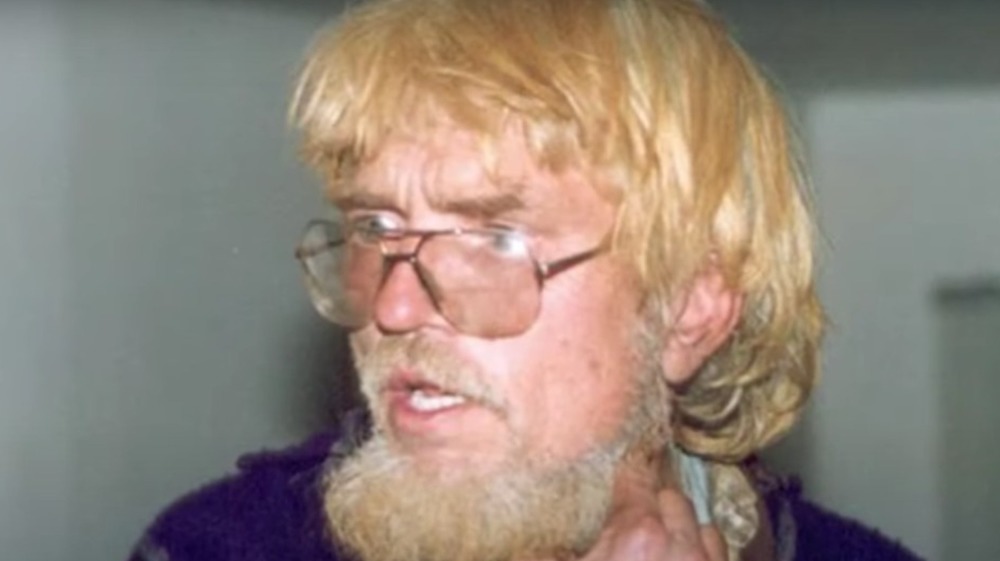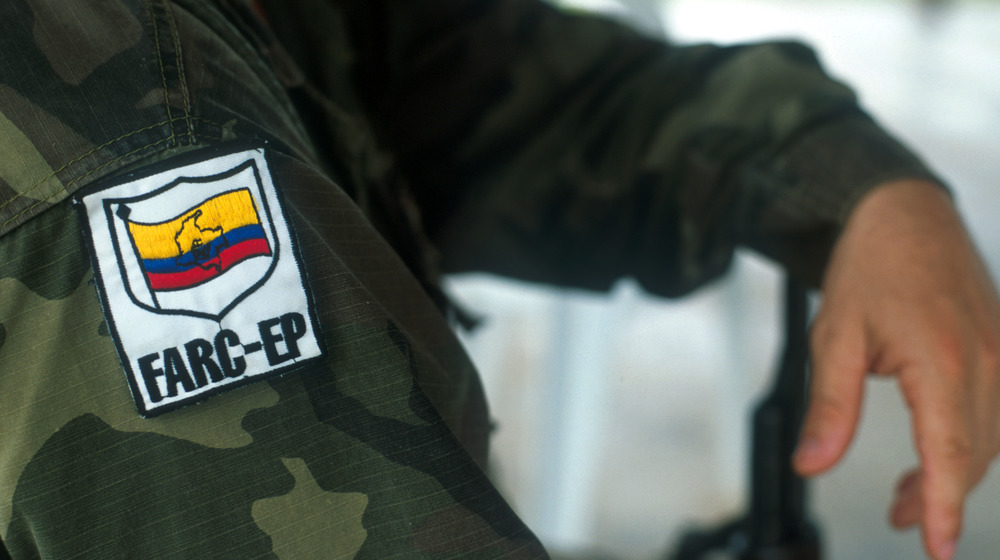The Real Reason Tom Hargrove Was Kidnapped
In 1994, Tom Hargrove was on his way to work in Cali, Colombia, when he found the road blocked. It was nothing out of the ordinary in Colombia, as the military often set up blockades as part of its ongoing war with rebel groups. What Hargrove didn't realize ahead of time was that this roadblock was different, and it would change the course of his life forever.
Hargrove was an American journalist and agricultural scientist kidnapped by the Revolutionary Armed Forces of Colombia-People's Army or FARC. The rebels held him for a total of 11 months, wrote Vanity Fair, but Hargrove was able to keep a written record of his ordeal. Additionally, his son, Miles, has released a documentary, Miracle Fishing: Kidnapped Abroad, streaming on Discovery+ this month. (The trailer is posted on YouTube.)
In those days, Colombia was far from safe, and earned a reputation for kidnapping and drug wars. Most foreigners were told to stay safe, be alert, and, if possible, don't go to Colombia. Hargrove, however, worked in Colombia as a journalist for the International Center for Tropical Agriculture. He was an expert on rice and, according to The New York Times, was working on a project to help Colombian communities produce pesticide-resistant rice. As far as Hargrove knew, he wasn't what FARC guerillas would consider a high-value target.
He blamed his ID
Hargrove didn't know why he was kept for so long. He wasn't rich and didn't work for any government. He was simply a scientist and a writer who talked about rice. But that day in 1994, it was his ID badge that doomed him. The name of his workplace, when translated to Spanish, was the Centro Internacional de Agricultura Tropical, or CIAT. In his book Long March to Freedom, Hargrove said that he later realized it was the first three letters of his ID that interested his kidnappers. They believed he worked for the CIA, the Central Intelligence Agency of the United States, and was, therefore, an important target.
Hargrove told Vanity Fair that the FARC rebels who took him were young boys from farming communities. They were mainly illiterate and didn't really understand what he was trying to tell them. FARC leaders didn't want to admit they'd made a mistake, making negotiating for Hargrove's release difficult, and the US government refused to pay ransoms or negotiate with FARC. In the end, Hargrove's family paid ransoms to the kidnappers, and Hargrove was released, though he more or less surprised his family when he showed up at their home, because communication between them and the FARC rebels was spotty at best.
Hargrove became a consultant for kidnap victims before he died in 2011 at the age of 66, as the Houston Chronicle reported. It's possible that one of his lessons was: Make sure your ID doesn't say CIA.

